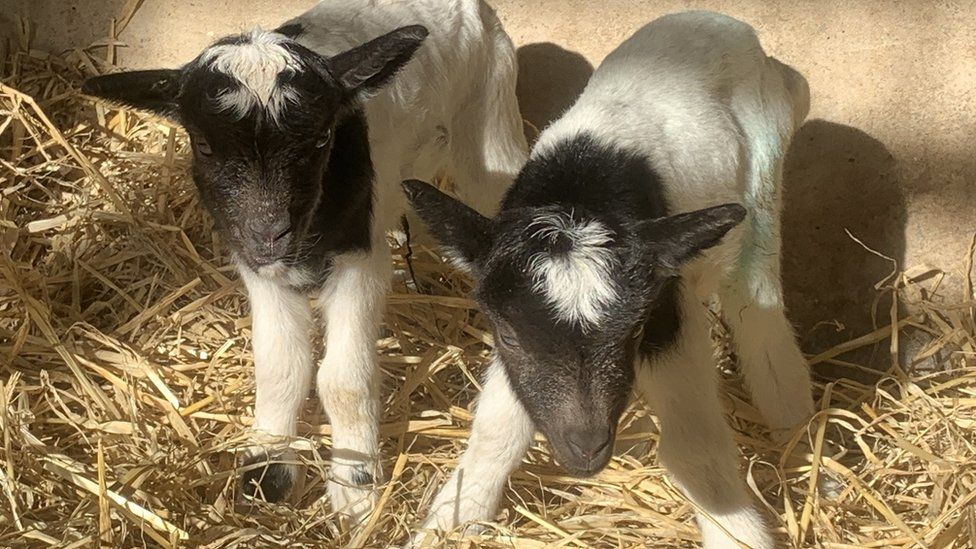First goats born in North Norfolk council breeding scheme
- Published

A pioneering council goat-breeding programme has proved to be successful, following the birth of its first kids.
North Norfolk District Council said six Bagot goats had been born at Wiveton Hall in the past month.
It said the goat herd grazed on overgrown land and was used for habitat management, thus saving it money.
Council leader Sarah Butikofer said she was "proud" to protect the animals, which have been listed as "vulnerable" by the Rare Breeds Survival Trust.
A single kid was born on 21 February, while two pairs of twins were born on Thursday, and a sixth on Friday.
Bagot goats were initially introduced to the district in 2016 to help clear vegetation on the cliffs at Cromer.
The council started with eight goats in the herd but now has more than 20 to form a complete breeding herd.
Norfolk and Suffolk Wildlife Trusts have since borrowed - and even bought - some animals to help maintain their land.
During the winter months, the goats live at Wiveton Hall, in Holt, but head to Cromer for the summer.
In recent years, they had become something of a tourist attraction and even had their own range of merchandise, the council said.
The council leader said it was "great" to see the young goats doing so well and added: "We are all very proud of the work our team is doing with this project."
- Published4 August 2018
- Published16 July 2017
- Published15 July 2017
- Published31 March 2017
- Published30 March 2017